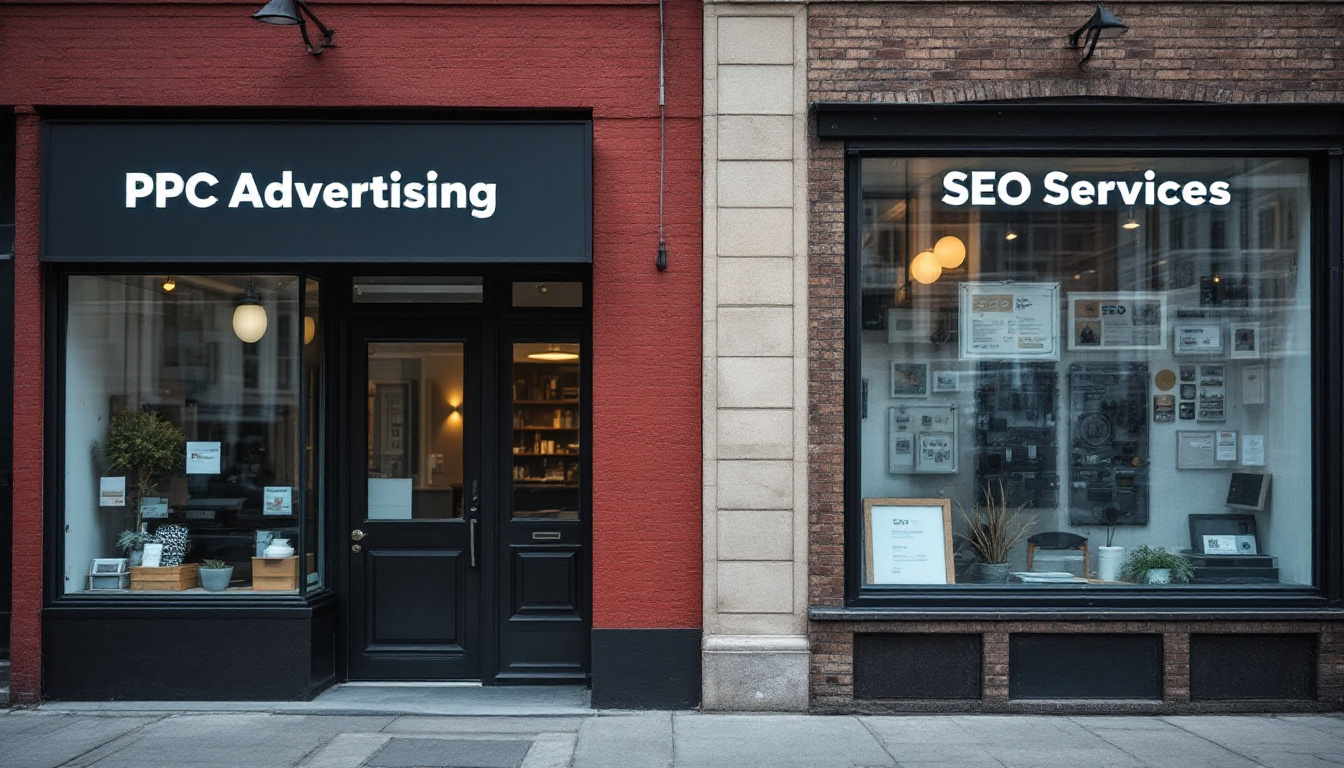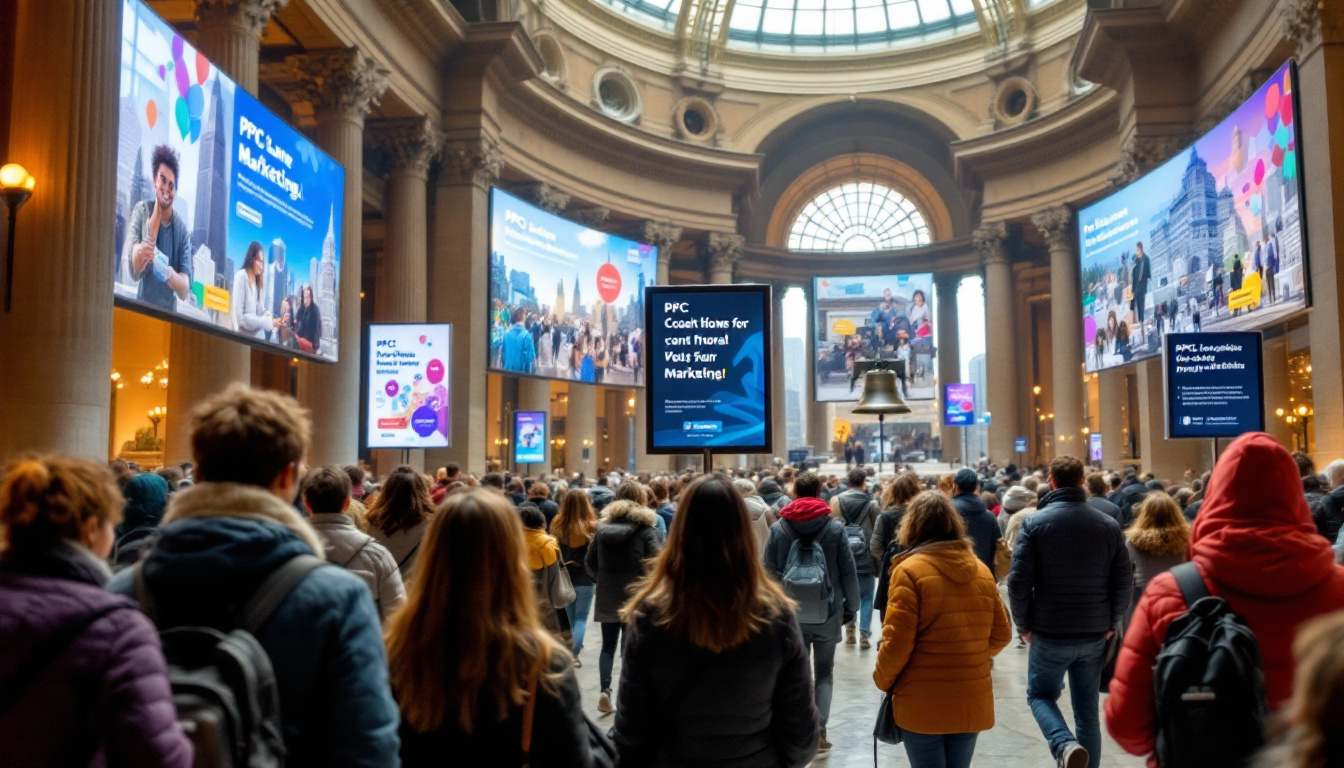Common Myths About PPC for Philadelphia, PA Businesses

Pay-per-click (PPC) advertising has become an essential part of online marketing for businesses in Philadelphia, PA. However, several myths surrounding PPC can deter local companies from effectively utilizing this powerful tool. In this article, we will debunk common myths about PPC, helping Philadelphia businesses understand its potential and advantages. Let's dive in!
Debunking the 'PPC is too expensive' myth
One of the most prevalent myths about PPC is that it is prohibitively expensive for most businesses, particularly small and medium-sized enterprises. Many believe that the costs associated with PPC campaigns can drain their marketing budgets, leaving little for other advertising avenues.
However, this perception is often misguided. PPC offers flexibility in budgeting and targeting. Businesses can set daily or monthly spending limits according to their financial capabilities, enabling them to run effective campaigns without overspending. Moreover, the immediate return on investment (ROI) from well-structured campaigns can indeed offset the initial costs.
Furthermore, businesses can make use of various bidding strategies such as cost-per-click (CPC) and cost-per-thousand-impressions (CPM) to find what best suits their specific roles in the market. This means small businesses in Philadelphia can compete with larger firms without breaking the bank.
In addition to budget flexibility, PPC campaigns provide businesses with valuable insights through real-time analytics. This data allows marketers to track which ads perform best, enabling them to optimize their strategies continuously. For instance, if a particular keyword is driving traffic but not conversions, businesses can adjust their approach, perhaps by refining the ad copy or targeting a different audience segment. This iterative process not only enhances the effectiveness of campaigns but also ensures that marketing dollars are spent wisely.
Moreover, the targeting capabilities of PPC are unparalleled. Advertisers can reach specific demographics, interests, and even behaviors, ensuring that their ads are shown to the most relevant audiences. This level of precision means that even with a modest budget, businesses can achieve significant visibility and engagement. For example, a local coffee shop can target ads to users within a certain radius who have shown interest in coffee or local dining, maximizing the chances of attracting foot traffic and increasing sales.
Why PPC is not just for big companies
Another misconception surrounding PPC is that it is only advantageous for larger corporations with substantial marketing budgets. Many small business owners in Philadelphia might assume that PPC advertising is out of reach for them or less effective than traditional marketing methods.
In reality, PPC has leveled the playing field. An effectively managed PPC campaign can yield considerable returns for businesses of all sizes. Local targeting options allow smaller companies to reach their desired audience within Philadelphia effectively. With geographic and demographic targeting, smaller businesses can advertise to specific neighborhoods, ensuring that they reach customers who are most likely to convert.
Innovation in the PPC landscape, such as automated bidding and smart campaigns, also enables small businesses to manage their advertising with minimal effort. By leveraging these tools, smaller enterprises can achieve remarkable visibility and engagement without needing a large marketing team.
Moreover, the flexibility of PPC campaigns allows small businesses to test various ad formats and messages quickly. This adaptability means they can respond to market trends and customer feedback in real-time, optimizing their campaigns for better performance. For instance, a local coffee shop could experiment with different promotions, such as a discount for first-time visitors or a loyalty program, and immediately see which ads resonate most with their audience. This agile approach not only maximizes their advertising budget but also fosters a deeper connection with the community.
Additionally, the data-driven nature of PPC provides valuable insights that can inform broader marketing strategies. Small business owners can track metrics such as click-through rates, conversion rates, and customer demographics, allowing them to refine their overall marketing efforts. This level of analysis was often reserved for larger companies with extensive resources, but now, even the smallest businesses can make informed decisions that drive growth and enhance their competitive edge in the bustling Philadelphia market.
Understanding the role of analytics in PPC
Analytics play a pivotal role in the world of PPC advertising. Yet, many businesses fail to appreciate its importance, believing that the act of setting up a campaign is sufficient for success. This oversight can lead to wasted budgets and missed opportunities.
Through the use of analytics, businesses can gain insights into various performance metrics. Key performance indicators (KPIs) such as click-through rates (CTR), conversion rates, and cost-per-acquisition (CPA) offer valuable data for optimizing campaigns. Analyzing these metrics allows businesses to make informed decisions about their ad spend and target specific demographics more effectively.
In Philadelphia, utilizing tools like Google Analytics and Google Ads can provide a comprehensive view of customer behaviors. By integrating these robust analytics capabilities, businesses can adapt their strategies in real-time, ensuring they are targeting the right audience and increasing the likelihood of generating leads and sales.
Moreover, the granularity of data available through analytics can help businesses identify trends over time. For instance, seasonal fluctuations in consumer behavior can be detected, allowing for strategic adjustments to campaigns that align with peak shopping periods. This proactive approach not only maximizes return on investment but also enhances customer engagement by delivering relevant ads at the right moment. Additionally, A/B testing can be employed to refine ad copy and landing pages, enabling businesses to determine which variations resonate most with their audience.
Furthermore, the integration of advanced analytics tools can facilitate deeper segmentation of target audiences. By analyzing demographic data, interests, and online behaviors, businesses can create highly tailored ad campaigns that speak directly to specific groups. This level of personalization not only improves the effectiveness of PPC efforts but also fosters a stronger connection with potential customers. As competition intensifies in the digital landscape, leveraging analytics becomes not just an advantage, but a necessity for businesses aiming to thrive in the PPC arena.
How PPC can provide immediate results
One of the most compelling reasons to invest in PPC advertising is its ability to deliver immediate results. Unlike other marketing strategies such as search engine optimization (SEO), which often requires time to build traction, PPC campaigns can generate traffic and leads almost instantly.

Once a PPC campaign is launched, ads can start appearing on search engine results pages and social media platforms within minutes. This immediacy allows businesses to capitalize on trends and seasonal opportunities effectively. For example, a Philadelphia-based restaurant can use PPC to attract patrons during special events or holidays.
Moreover, consistent monitoring and adjustments to campaigns can quickly refine targeting and messaging, ensuring maximum effectiveness. This responsiveness to market conditions reflects a significant advantage for businesses seeking not just visibility but also enhanced customer engagement in a fast-paced environment.
In addition to immediate visibility, PPC also provides valuable data analytics that can inform future marketing strategies. Each click on an ad is tracked, allowing businesses to gather insights into customer behavior, preferences, and demographics. This data can be instrumental in shaping not only the current campaign but also long-term marketing initiatives. For instance, a company may discover that a particular demographic responds exceptionally well to their ads, prompting them to tailor future campaigns specifically for that audience.
Furthermore, the flexibility of PPC allows businesses to test various ad formats and messaging quickly. A/B testing can be employed to determine which headlines, images, or calls to action resonate most with potential customers. This iterative approach not only enhances the effectiveness of the current campaign but also builds a repository of knowledge that can be applied to future advertising efforts. As a result, businesses can optimize their marketing spend, ensuring that every dollar invested in PPC yields the highest possible return on investment.
PPC vs. SEO: Which is better for your business?
The debate between PPC and SEO is an ongoing one, with both strategies offering unique advantages and challenges. Deciding which is better for your Philadelphia business depends on several factors, including time, budget, and goals.

PPC can offer immediate visibility and results, making it ideal for businesses that need a quick influx of traffic. It's especially effective for new businesses looking to establish a presence or those running time-sensitive promotions. In contrast, SEO focuses on long-term organic traffic, requiring ongoing investment in content creation and optimization.
- PPC: Immediate results, high visibility, ideal for campaigns with limited timelines.
- SEO: Long-term strategy, ongoing benefits, and credibility boosts when ranking organically.
Many businesses opt for a hybrid approach, utilizing both PPC and SEO to maximize their online presence. By investing in both strategies, Philadelphia companies can harness the strengths of each, driving immediate traffic through PPC while building a solid foundation for organic search success over time. This dual strategy not only allows businesses to capture a wider audience but also provides valuable insights into customer behavior and preferences, which can inform future marketing efforts.
Moreover, understanding the nuances of both PPC and SEO can significantly enhance a business's overall digital marketing strategy. For instance, PPC campaigns can reveal which keywords are most effective in driving conversions, data that can be leveraged to refine SEO efforts. Similarly, high-performing organic content can inspire targeted PPC ads, creating a cohesive marketing ecosystem that maximizes return on investment. Additionally, as consumer behavior continues to evolve, staying adaptable and responsive to trends in both PPC and SEO can position businesses to stay ahead of the competition in the bustling Philadelphia market.
In conclusion, dispelling the myths surrounding PPC is crucial for businesses in Philadelphia, PA. Recognizing that PPC is not just for large firms, understanding its analytical importance, and acknowledging its potential for immediate results can empower businesses to leverage this effective marketing tool. By making informed decisions, local companies can develop successful PPC campaigns that complement their overall marketing efforts.

As a Google Ads expert, I bring proven expertise in optimizing advertising campaigns to maximize ROI.
I specialize in sharing advanced strategies and targeted tips to refine Google Ads campaign management.
Committed to staying ahead of the latest trends and algorithms, I ensure that my clients receive cutting-edge solutions.
My passion for digital marketing and my ability to interpret data for strategic insights enable me to offer high-level consulting that aims to exceed expectations.





























